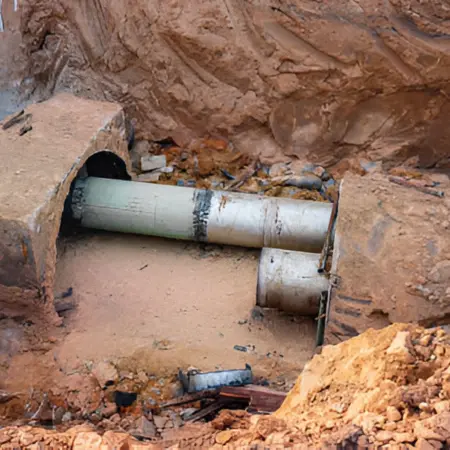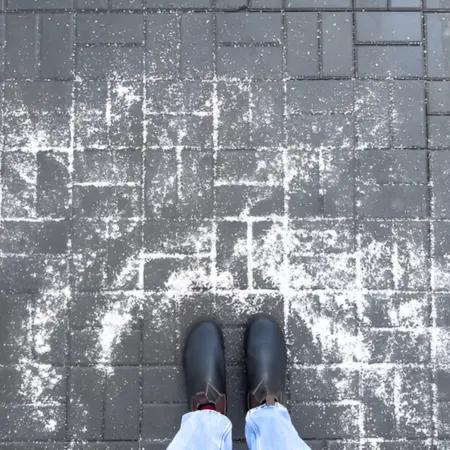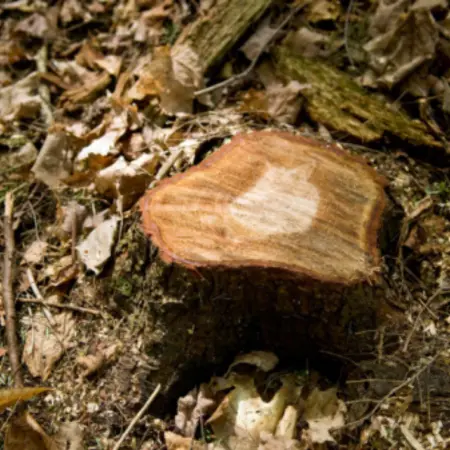Tree roots can block sewer lines and cause big problems.
Rock salt is a simple way to fix this.
It dries out the roots and stops them from growing.
Here’s how it works and why many people use it.
Key Takeaways
- Rock salt is a simple and affordable solution for tree roots in sewer lines.
- Regular use of rock salt may be needed to control root growth.
- Older pipes and surrounding soil can be damaged if rock salt is overused.
- Rock salt is easy to apply with no special tools and professional help.
- Chemical root killers work faster but may damage pipes and the environment.
- Hydro-jetting is effective for severe blockages but requires professionals.
- Pipe relining and replacement is a permanent fix but can be expensive.
- Regular maintenance and proper landscaping can prevent future tree root problems.
Effectiveness Of Rock Salt
Rock salt is a popular method for dealing with tree roots in sewer lines.
It works well for minor issues, but it has its limits.
Here are the pros of using rock salt:
1. Affordable And Easy To Find
Rock salt is cheap and available at most stores.
You don’t need any special equipment to use it.
2. Simple DIY Method
Applying rock salt is easy.
Flush it down the toilet to send it into the sewer line.
It doesn’t need professional help.
3. Temporary Relief
Rock salt can dry up small roots and quickly clear clogs.
It helps manage early-stage blockages.

Here are the cons of using rock salt:
1. Not A Permanent Fix
Rock salt only kills roots inside the pipes.
It doesn’t stop new roots from growing back over time.
Regular treatments are needed.
2. Limited For Severe Blockages
Rock salt won’t be enough if the roots are thick or deeply twisted.
In such cases, professional cutting and chemical treatments might be required.
3. Possible Risks
Rock salt can harm older and fragile pipes over time.
It may also affect the surrounding soil, especially if overused.
How Rock Salt Affects Roots Without Killing The Tree
The roots in sewer pipes are only a small part of the tree’s overall root system.
Rock salt targets these roots directly, drying them out.
The main tree and deeper roots remain safe since the salt stays in the pipes and nearby soil.
This makes rock salt an effective solution without damaging the tree.
Typical Process Of Applying Rock Salt To Sewer Lines
Using rock salt in sewer lines is simple and can be done by following this easy process.
- Prepare The Salt: Use plain rock salt available at most stores. Avoid adding other chemicals.
- Flush It Down: Pour 2-3 cups of rock salt into your toilet. Flush it down to send the salt into the sewer line.
- Let It Work: Leave the sewer line unused for at least 8-12 hours. This gives the salt time to dehydrate the roots.
- Repeat: Apply rock salt once every few months to keep the roots under control.
This simple process can help keep your pipes clear without damaging the surrounding trees.
Comparing Rock Salt To Alternative Methods
There are several ways to deal with tree roots in sewer lines.
Rock salt is a simple choice, but other methods might work better for long-term problems.
Here’s a look at how they compare.

1. Chemical Root Killers
Chemical root killers are stronger and work faster than rock salt.
They kill roots more effectively and stop new ones from growing.
These products clear blockages quickly, especially with thick roots.
However, they can be more expensive and may damage pipes and soil.
They are better for tough clogs than rock salt but not as eco-friendly.
2. Hydro Jetting
Hydro-jetting uses high-pressure water to remove roots and debris.
Professionals do it and clear pipes well.
It works for severe root problems but requires special equipment and is expensive.
Hydro-jetting doesn’t stop roots from regrowing, so it’s best used with other methods.
3. Pipe Relining Or Replacement
Relining or replacing pipes is a permanent solution for badly damaged pipes.
Relining adds a layer inside the pipe to block roots, while replacement fixes pipes that can’t be repaired.
These methods are expensive and need professional help.
They fix the root cause of the problem but take more time and money than rock salt.
4. Comparing Pros And Cons
Rock salt is cheap, easy to use, and good for small issues but doesn’t provide a long-term fix.
Chemical root killers are faster and stronger but can harm the environment.
Hydro jetting clears pipes well but doesn’t stop roots from returning.
Pipe relining or replacement is a permanent solution but is the most expensive.
The best method depends on the severity of the problem and your budget.
When To Call A Professional
Sometimes, DIY methods like rock salt aren’t enough to fix tree root problems in sewer lines.
If blockages keep happening after using rock salt, the problem might be long-term.
You may need a stronger solution.
Slow draining and frequent backups could mean serious root damage or a big clog.
If the roots are deep or thick, DIY methods might not work.
Professionals have the right tools to fix it.
A professional assessment is important to determine the damage’s full extent.
They can fix the problem properly and help prevent it from happening again.
Also, they help avoid bigger issues like pipe damage or long-term blockages.
Contact us at OP Plumbing Hub for expert advice and help.

Preventing Tree Root Problems In The Future
Regular maintenance and planning can help avoid future tree root issues in your sewer lines.
Here are three tips.
1. Regular Sewer Line Maintenance
Inspect your sewer lines every few years.
Clean them to remove any early signs of root growth.
This can prevent big problems later.
2. Landscaping Strategies
Choose trees that have shallow and small roots for areas near your pipes.
Avoid planting large trees near sewer lines.
If you already have large trees, keep their roots trimmed.
3. Root Barriers
Install root barriers around your sewer pipes.
These barriers block roots from reaching the pipes and causing damage.
Using them in your landscaping can save you from future headaches.
Conclusion
This article talks about the effectiveness of rock salt in killing tree roots in sewer lines.
It effectively kills small tree roots in sewer lines and clears minor blockages.
Yet, it’s not a permanent fix.
For severe root problems, you may need stronger methods or professional help.
Contact us at OP Plumbing Hub for high-quality and reliable services.
